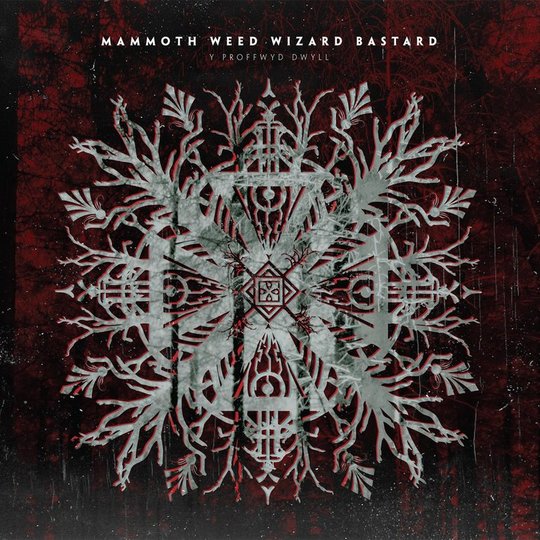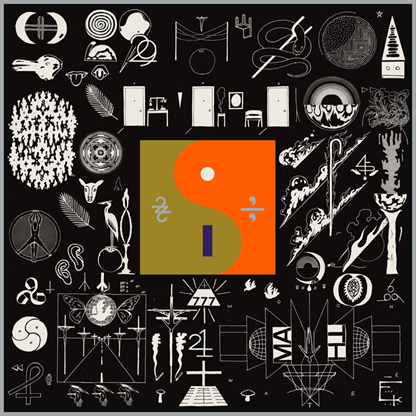As far as a gimmick for a doom band goes, calling yourselves Mammoth Weed Wizard Bastard isn’t a bad choice – if nothing else it’s a sure fire way to lure in the mildly curious amongst those with a penchant for riffs. There’s been much talk about their choice of moniker, and to that end it’s served its purpose, but what’s left when you strip away the surrounding noise and really get down to business on their latest record Y Proffwyd Dwyll?
First things first, it’s admirable that the Welsh doom crew are intent on pushing their native tongue, especially using relentless, monotonous slabs of guitar thicker than the very mountains they feel mined from. It’s a language that feels somehow meshed with and entrenched in the kind of fantastical, dark fairytale world that their music evokes, an arcane dialect that’s perfectly complimentary to their death-march through the valleys.
A startlingly short nine months after the release of their debut Noeth Ac Anoeth, producer Chris Fielding of fellow doom outfit Conan returns to the helm in the studio, and it’s immediately obvious that his talents are not misplaced. The production might be treacle-thick in places, almost choking on the layers of distortion and washing crash cymbal that characterise the genre, but there’s a perfectly pitched space and lightness, too, that prevents their bleak waves of nausea-inducing, hypnotic take on metal from ever becoming overly oppressive.
Loosely translated as ‘False Prophet’ in old North Welsh, the band state that the concept of worship is the narrative thread that binds the record, as they explain: “Humans always seem to need to kneel before someone or something. Drugs, music and euphoria are often combined to get some sort of hypnotised state.”
Indeed, in their efforts to create something akin to the sonic equivalent of an extremely fucked up magic mushroom trip, the record variously evokes a variety of disturbing pagan rituals, the machinations of the universe, endlessly multiplying bacteria in a petri dish, the relentless march of technology and humanity, and that’s just in the first five minutes. Overall it’s an album that, whilst on the surface seems simple, succeeds in being so engaging by providing the listener with just enough leash to take their mind for a wander between the spacious arrangements.
The slow build of ‘Testudo’ is a particularly effecting piece that seems jam-packed with whirling retro Moog synthesisers and FX pedals, as those ethereal vocals courtesy of Jessica Ball so perfectly avoid the usual wailing banshee clichés and manage to remain entirely credible and beautiful of their own accord. Pleasingly, they work even better when paired with a sledgehammer of guitars to the auditory system.
Themselves referencing the likes of Hawkwind and John Carpenter as influences on their writing for this effort, it’s obvious that MWWB have a broader vision for their continuing project, with Y Proffwyd Dwyll labelled as the second part in a trilogy. It remains to be seen whether they’ll really push the envelope on future releases, and they’re still very much sitting in quite the niche even with their more accessible material, but there’s definitely a spark of something unusual about their approach to doom, stoner and sludge that’s enough to pique interest in those less well versed in the genres.
Admittedly, casual listeners might struggle with the lack of dynamic and variety of texture on across the album as a whole and it would be a fair criticism – MWWB aren’t in any danger of crossing over into the mainstream any time soon – but what they are doing is providing an entry point to a deep, dark world that’s more than worth exploring for any curious cave dwellers who still remain in the closet. Positively ghoulish, just in time for Halloween.
-
7Jamie Otsa's Score






















